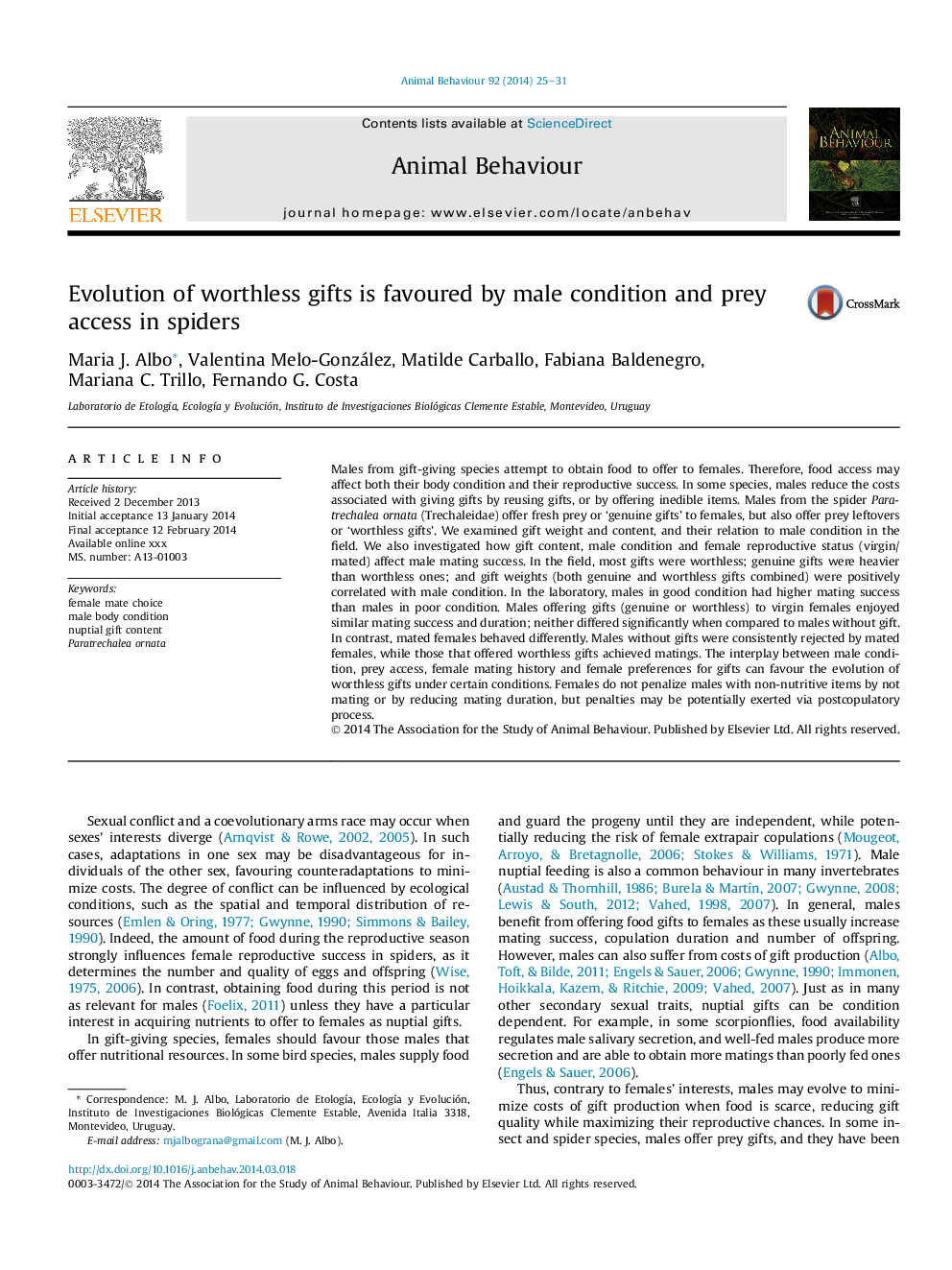| کد مقاله | کد نشریه | سال انتشار | مقاله انگلیسی | نسخه تمام متن |
|---|---|---|---|---|
| 8490510 | 1552236 | 2014 | 7 صفحه PDF | دانلود رایگان |
عنوان انگلیسی مقاله ISI
Evolution of worthless gifts is favoured by male condition and prey access in spiders
ترجمه فارسی عنوان
تکامل هدایای بی ارزش توسط شرایط نر و دسترسی به طعمه در عنکبوت ها مورد توجه قرار می گیرد
دانلود مقاله + سفارش ترجمه
دانلود مقاله ISI انگلیسی
رایگان برای ایرانیان
کلمات کلیدی
موضوعات مرتبط
علوم زیستی و بیوفناوری
علوم کشاورزی و بیولوژیک
علوم دامی و جانورشناسی
چکیده انگلیسی
Males from gift-giving species attempt to obtain food to offer to females. Therefore, food access may affect both their body condition and their reproductive success. In some species, males reduce the costs associated with giving gifts by reusing gifts, or by offering inedible items. Males from the spider Paratrechalea ornata (Trechaleidae) offer fresh prey or 'genuine gifts' to females, but also offer prey leftovers or 'worthless gifts'. We examined gift weight and content, and their relation to male condition in the field. We also investigated how gift content, male condition and female reproductive status (virgin/mated) affect male mating success. In the field, most gifts were worthless; genuine gifts were heavier than worthless ones; and gift weights (both genuine and worthless gifts combined) were positively correlated with male condition. In the laboratory, males in good condition had higher mating success than males in poor condition. Males offering gifts (genuine or worthless) to virgin females enjoyed similar mating success and duration; neither differed significantly when compared to males without gift. In contrast, mated females behaved differently. Males without gifts were consistently rejected by mated females, while those that offered worthless gifts achieved matings. The interplay between male condition, prey access, female mating history and female preferences for gifts can favour the evolution of worthless gifts under certain conditions. Females do not penalize males with non-nutritive items by not mating or by reducing mating duration, but penalties may be potentially exerted via postcopulatory process.
ناشر
Database: Elsevier - ScienceDirect (ساینس دایرکت)
Journal: Animal Behaviour - Volume 92, June 2014, Pages 25-31
Journal: Animal Behaviour - Volume 92, June 2014, Pages 25-31
نویسندگان
Maria J. Albo, Valentina Melo-González, Matilde Carballo, Fabiana Baldenegro, Mariana C. Trillo, Fernando G. Costa,
